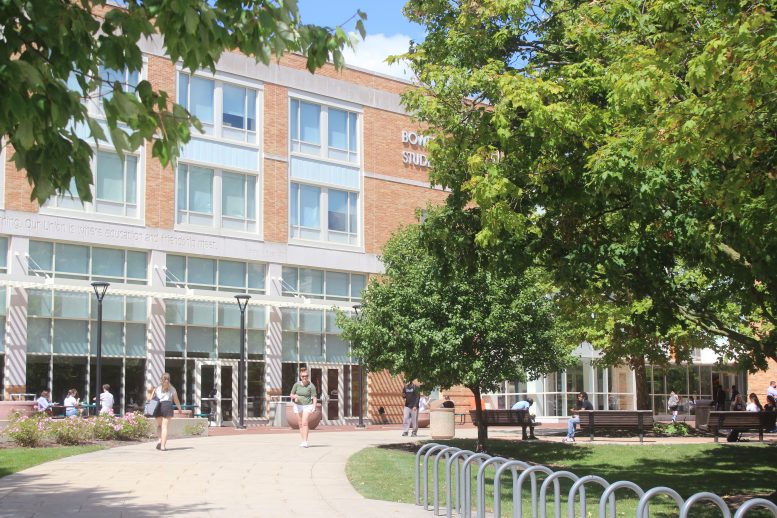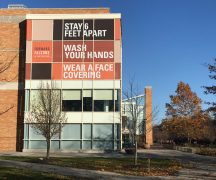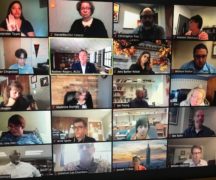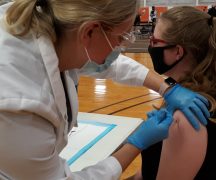By DAVID DUPONT
BG Independent News
A survey conducted about students’ attitudes toward COVID-19 had some mixed messages.
Students understand and agree with the benefits of preventive measures such as hand washing, social distancing, and wearing face coverings, and are willing to practice those.
However, they really don’t think they will contract the coronavirus.
Terry Rentner, a professor in the School of Media and Communication who studies health communications, and Saud Alsulainan, a visiting research scholar who received his doctorate from BGSU, conducted the study of 1,776 students.
Rentner said that the study was based on Alsulainan’s dissertation on attitudes about the coronavirus in Saudi Arabia.
The survey was conducted over the summer starting in May on a random sampling of undergraduate and graduate students drawn by the university’s Office of Institutional Research.
“I wanted to gain a better understanding of students’ knowledge of COVID 19 and their perceived susceptibility and severity if they contract it,” she said.
The study found that they tend to think they are more unlikely to get COVID-19 than other people, and that it will not change their lives if they do. They don’t believe it will have long-range effects.
In that response, Rentner detected the “optimism bias” at work.
That phenomenon “is the mistaken belief that an individual’s chances of experiencing a negative event are lower than that of their peers,” she said. “That definitely came out.”
That could mean that they will be more willing to engage in risky behavior.
When Rentner heard about big parties over the summer, she thought “they have this ‘not-me’ syndrome.”
Still students understand that if they contract COVID-19, others in their households are likely to contract it as well. “They know they’re putting any people at risk if they get it, but they don’t think they’ll get it,” Rentner said.
Students felt that they were capable of following the CDC guidelines about hygiene, face covering, and social distancing.
The study found they do not search for new information about COVID-19, Rentner said. “That’s this generation. They’re not news consumers either.”
Rentner said the study is being prepared for publication.
The BGSU Faculty Senate also did a study focusing on the attitudes of faculty, staff and students about returning to campus.
The study received more than 900 responses from faculty and staff, and about 450 from students. Because the university did not want students included in the study, the sample is lower for students.
At this week’s Faculty Senate meeting, Richard Anderson, a psychology professor who chaired the study committee, gave a very preliminary report on the findings.
In general, faculty and staff are far more concerned about returning to face-to-face instruction on campus than are students.
Faculty and staff question how well health measures will be enforced, with more than half doubt that social distancing and mask wearing will be enforced in non-academic settings, both indoor and outdoor.
They also expressed doubts about whether others will comply with these safety measures.
Anderson said he was doing the analysis of the findings himself and asked the senators to give him further guidance on the issues he should focus on.





